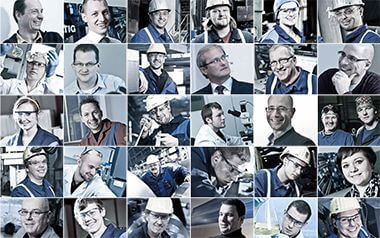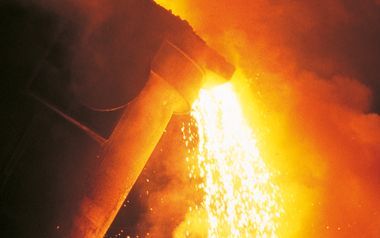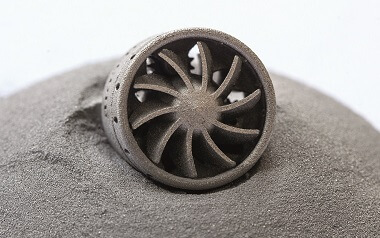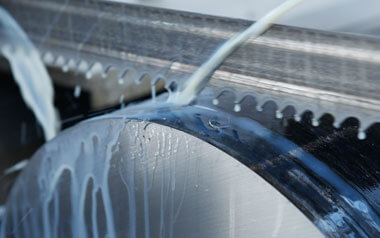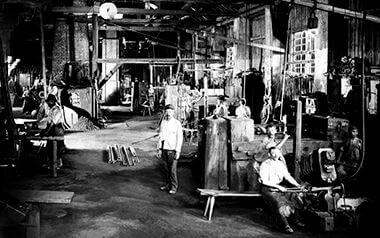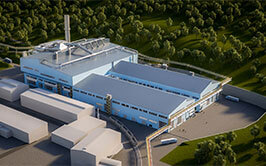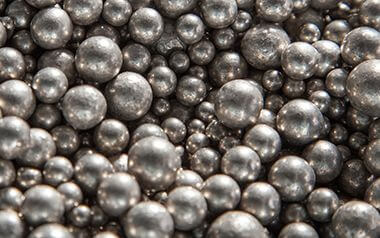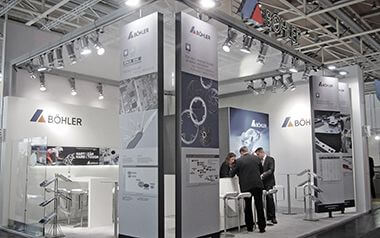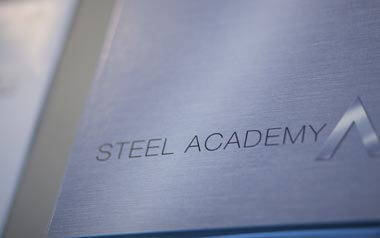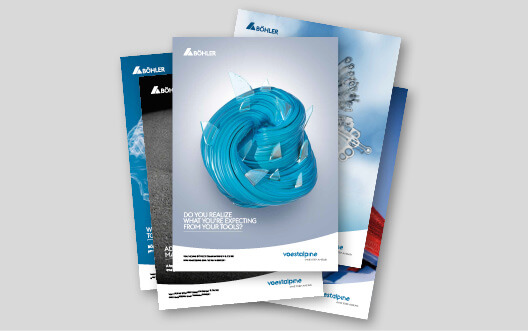Case-hardening steels are steels with a relatively low carbon content of around 0.2%, which are intended for carburising or carbonitriding and subsequent hardening.
Case-hardening steels are hardened by carburising the surface layer and are characterised in particular by a very high surface hardness (approx. 62 HRC) in combination with a tough core. This special variant of hardening consists of the partial steps of carburising, hardening and tempering.
By means of a diffusion process, the surface layer of the steel is enriched with approx. 0.6 % carbon. Subsequently, the degree of hardness of the surface and the properties of the core are adjusted by hardening with subsequent tempering. This produces a hard, wear-resistant surface layer that is subject to compressive stress, while the core remains comparatively tough. As a result, the material can absorb impact stresses with a high level of fracture resistance and also has a high resistance to wear and fatigue. Alloying elements such as manganese, nickel and chromium can be used to optimise the core strength and wear resistance for the various applications.
The use of case-hardening steels is varied, essentially resulting from the required properties. Case-hardened steel is used in automotive engineering and racing as well as in mechanical and plant engineering for cardan shafts, coupling parts, gear wheels and bolts, among other things.
The unalloyed case-hardening steels are used for components with low core strength, such as bolts, pins and levers, joints and bushings.
The Mn-Cr alloyed case-hardening steels are used for camshafts, spindles, piston pins, small and medium gear wheels and shafts.
The higher alloyed grades are suitable for higher and highly stressed gears and shafts, gear, joint and control parts.
Due to their excellent polishability and wear resistance, these steels are also suitable for tools in plastics processing, especially for smaller moulds and inserts.
Case-hardened steels are usually conventionally melted in air. For applications that require the highest purity and homogeneity and thus the highest fatigue resistance, special metallurgical manufacturing processes are used, e.g. special ladle metallurgical treatments, electroslag remelting and vacuum arc remelting.


